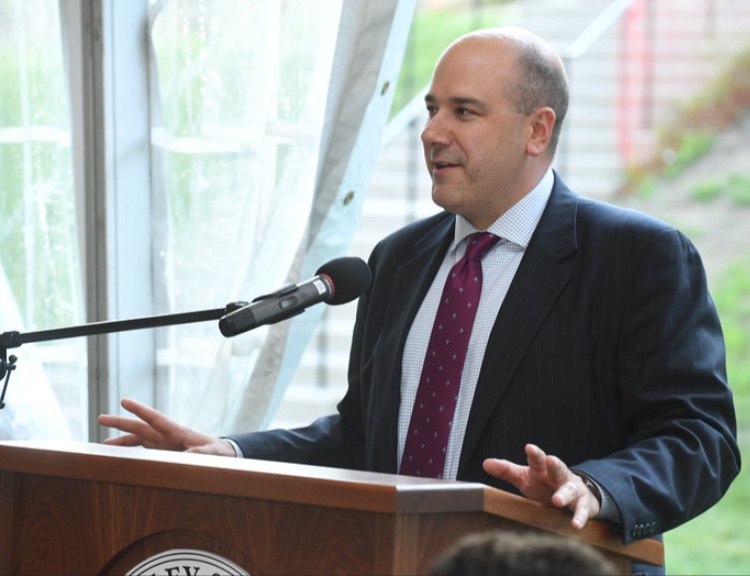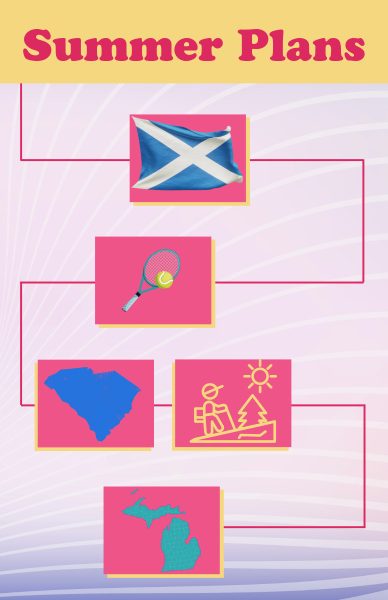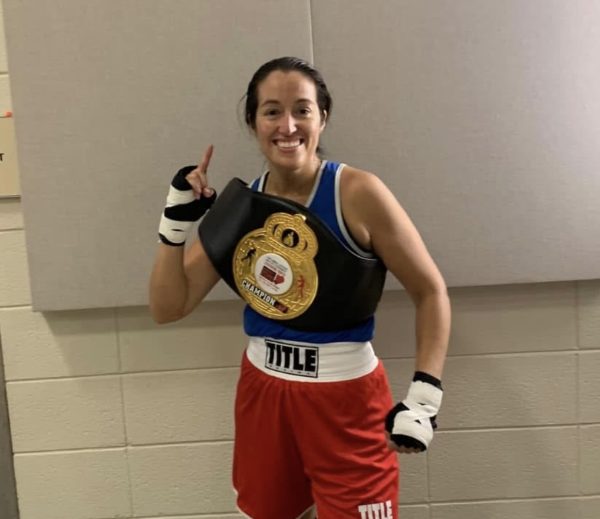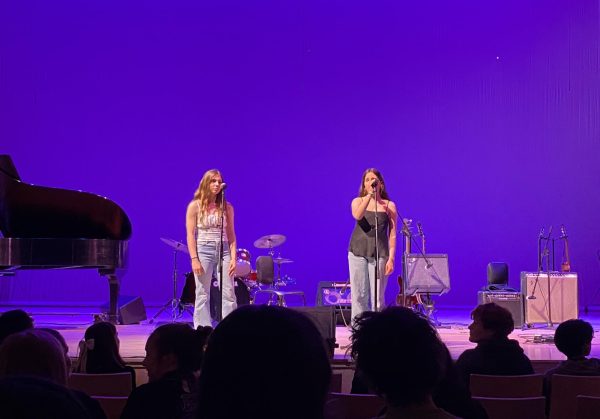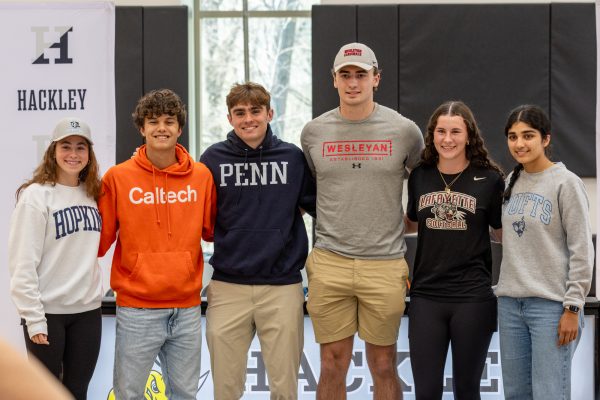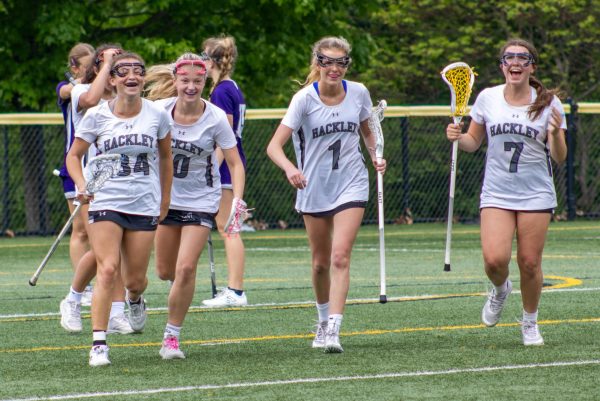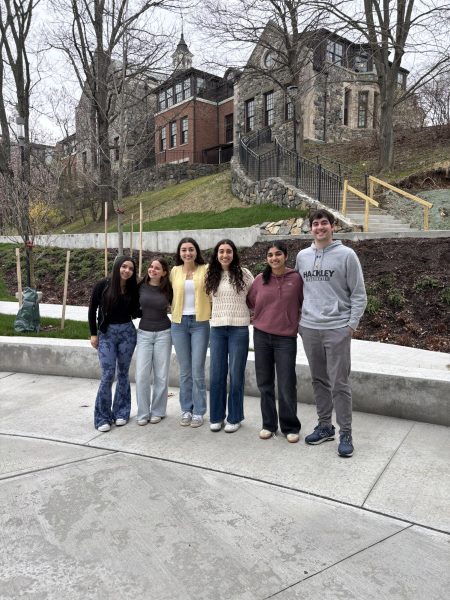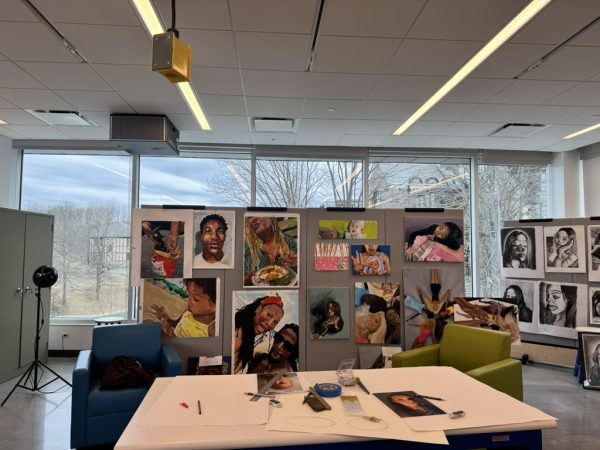QA with Mr. King
Quarantine has affected people in different ways. Some face the loss of family members or close friends. Some struggle with the uncertainty of the future. Others have discovered a new sense of productivity, while some welcome the break in their normal busy schedules. Regardless of the way in which COVID-19 leaves a mark on our lives, one thing seems to stay constant throughout it all: feelings of isolation. Because we have to physically isolate ourselves from friends and possibly even family members, it often times feels lonely being away from our loved ones.
Zooming and Facetiming can be modes of communication to aid in those feelings of loneliness, but ultimately, it is just not the same as hanging out with the people you care about in person.
In order to maintain a sense of community, a few faculty members were asked to speak on their passions and recount memories associated with those passions. The first faculty member in this mini-series is one known by all members of the Upper School. While his official title is Director of Upper School, he is also known for his friendly demeanor and having his office door wide open, ready to speak with students whenever necessary. The first faculty member is Mr. Andrew King.
Mr. King speaks on his experience in a semester off campus program during the spring of his junior year at Colgate University. During this semester, he interned in the executive branch of the government under the vice president of the time, Al Gore, and also worked in the legislative branch under Charles Schumer, a member of the House of Representatives at the time.
What was the day to day experience of interning in Washington, D.C. like?
It was a lot of work actually. We were working full-time intern jobs, unpaid. We would get there at 8, stay until 5 or 6 and then we would go to class [around] 7:00 at night for three hours, a couple of nights a week. It was fun, but it wasn’t being on a beach in Australia or touring around Italy. *laughs*
What was it like working for the executive branch?
For the executive branch, I was a White House intern. I worked in the Old Executive Office Building which is one of the buildings right next door to the White House. President Clinton had been re-elected in November of 1996, [and] I was there for [his] inauguration in January of 1997. I attended the inauguration [and] we had pretty decent seats, [able to] be out in the mall and check things out. It was kind of a cool moment, being part something. Nothing terribly historic about Clinton’s second inaugural address, but it was exciting to be there.
What were the types of tasks you were given as a White House Intern?
You’re answering the phone [and] you’re opening letters. Everybody had a mailroom shift and [on] the first day they gave you training about what to do if you get threatening letters. If you see a letter that looks like [it’s] written by somebody who might be expressing harm to anyone in the government or [government’s] family, it immediately goes to the person in charge there, and [through] whatever their security protocols were. This was pre-9/11 so the whole world of this might have changed dramatically. I personally didn’t read any of those letters, but it’s interesting what you read. You read [about] people who think that if they write the president, the president will help them because they’ve lost their job or because there is something wrong with [their] local government. Or in my case, it was the vice president’s mail that I was opening. Not terribly exciting stuff, but it was the work of an intern.
Were there any specific stories you remember from being in that office?
This is [a bit] of a historical footnote. There was a day when a news story broke that Vice President Gore had held a fundraiser at a Buddhist temple. It was a very bad move and there was a lot of criticism that whipped back around at the Clinton-Gore team for this. And so, when this became public, I happened to be the intern that was assigned to the phone that day. So, many many angry Americans spoke to me as a 21-year-old kid, demanding to speak to the vice president. [They would angrily say things like] ‘will you take my name down and tell him what I have to say’ and [I would say] ‘yes sir, thank you very much, yes ma’am thank you very much’.
[And then once], we met the vice president, shook his hand and had pictures taken with him. He chatted with us for a few minutes and then went on with his day.
Were there any specific people you remember from being in that office?
It was really interesting to talk to the Secret Service agents. I [mostly] talked to the men and women who were working the desk inside the office building\; they weren’t [the agents in] suits running alongside the cars. One of the officers who had retired from protection and would tell me stories about the places he’d been and the things he’d seen. He had been an eyewitness to history in a way that few had. That kind of connection was really cool.
What was it like working for the legislative branch?
I worked for Chuck Schumer. He’s now one of our senators, but at the time he was a member of the House of Representatives. I was working in his office the year that he announced that he was running for Senate, for the seat that he won and has subsequently won several times. It was a smaller office, [so] we did more. I had more responsibilities [and] I did research projects. At the time, Schumer was exploring legislation about what he called ‘gun-running’. [We researched] how you trace a gun from a gun show in Florida and figure out how that gun found its way to New York. When the legislation was done, his team let me be at the press conference for that. I was the intern tasked with producing all of the visuals.
What were some of the key takeaways from that experience?
We are having this conversation today because of my experiences in Washington. I thought that was the kind of work I wanted to do after college. I thought I would go down to the
“Hill” and do something to government. And [then] I met some of the most intelligent people I’ve ever met in my life, who looked at me and said if [they] were [to do] it all over again, [they] wouldn’t do it. These were amazing government servants and public policy specialists [who told me] ‘I wouldn’t do it if I were you’. So that carried with me and [led me to] think about different pathways. And eventually, that’s how I ended up getting a history teaching job at a little independent school in Tarrytown, NY.
What were some of your favorite parts of the experience?
[I loved] the whole experience of living in Washington DC. I grew up in a small town in upstate New York [and] went to college in a small town in upstate New York, [so it was great] being able to live in DC. I also got trained to give tours of the US Capitol to Schumer’s constituents which [I loved]. It was a way to meet people and I had access to the Capitol, including the subways that connect the buildings, which meant I got to see parts of these buildings that other people didn’t see.
What were some of the toughest moments of that experience?
I think that disillusionment piece of thinking ‘Eek, this is what I thought I wanted to do and now I don’t think I want to do this anymore’ [was difficult]. And I’m grateful because obviously I’ve gained so much from my relationship with Hackley over these last 21 years. I don’t look back and wish I had gone to work on the hill [instead].
How did you end up at Hackley?
I had a really good advisor. He was the head of the history department, I had worked closely with him, and was writing my senior thesis with him. [At the time], I kind of had three plans. [At first I thought] ‘Maybe I’ll apply for a Ph.D. program in history and go to graduate school.’ I was a little late to that party, and [my advisor] also told me it was a bad idea. He [warned me] that [I would] spend [my] life doing research and not teaching\; he [knew I] probably wanted to teach. [The second was to work at a private school.] He’s the one that told me [that] private schools, ironically, don’t require a teaching certification. My [final] plan was if I didn’t get a teaching job, was to move to Boston where my friends were. But in April of my senior year (I had gone through a search agency) I got [the] call from Mr. Variano. He was my first introduction to Hackley and it’s pretty cool that he and I are [still here] 22 years later. He was my first contact and now he’s a good friend.
What advice would you give to your younger self?
Be a collector of experiences. The sum total of why I am where I am is: I’m a guy who liked school but didn’t ever get to go to a school as special as Hackley. [This is] a place that is so engaging and friendly and teachers are so switched on and excited about what they do. I like it so much, I never left. And now my son gets to go there too, which is such an honor. [My advice would be] collect experience and see where it takes you. I’m really glad I had that experience in Washington because it was very clarifying for me, in a good way. I wouldn’t trade it.
What advice would you give to Hackley students making decisions about their future?
Talk to people in your circle. If I hadn’t had that conversation with Andy Rotter, my college advisor, in the winter of 1997, I wouldn’t have known about independent school teaching. I think [also] network and connect here at Hackley. I think whether it’s at the Hackley level or the college level you never know [whether a] conversation [will] open a door for you. I didn’t have any connection to Hackley before I [got] there and now it’s become kind of the center of my world.

